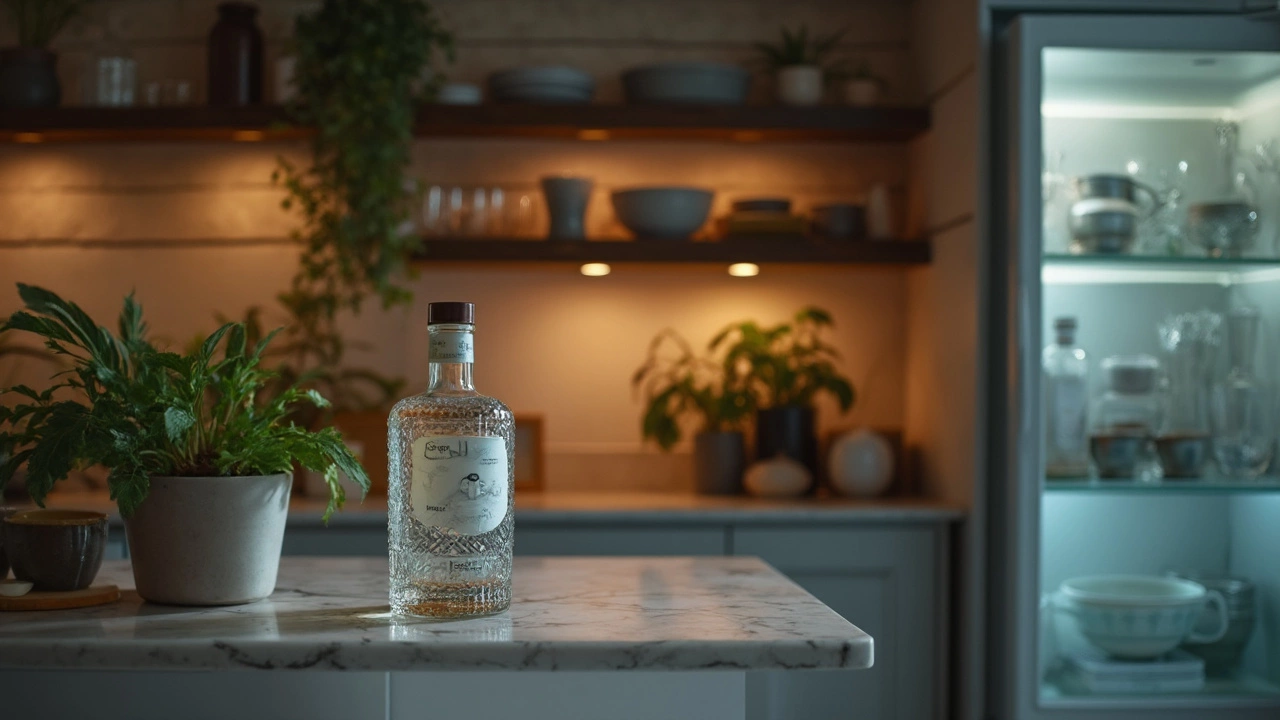Gin Shelf Life: How Long Does Gin Last and How to Store It Right
If you’ve ever wondered whether that bottle of gin in the back of your cabinet is still good, you’re not alone. Gin is a spirit, so it doesn’t spoil like milk, but it can lose flavor and aroma over time. Knowing the basics helps you keep every sip as bright as the day you bought it.
Factors that Affect Gin Shelf Life
First off, unopened gin can sit on a shelf for a very long time—often 2 to 3 years or more—because the alcohol content (usually around 40%) acts as a preservative. The real trouble starts once you open the bottle. Every time you pour, oxygen gets in, and that tiny amount of air can start breaking down the botanicals that give gin its character.
Light is another enemy. Sunlight or bright kitchen lights can speed up the oxidation process, especially for lighter‑colored gins. Keep the bottle in a dark place or use a tinted glass to protect it.
Temperature matters too. A cool, steady temperature (think a pantry or a liquor cabinet) is best. Storing gin in a hot spot like near a stove will accelerate flavor loss. Flavored gins—those with added fruits, spices, or herbs—are more delicate and may start to change after a year once opened.
Tips for Storing Gin to Keep It Fresh
Here are a few easy habits that make a big difference:
- Seal it tight. Always put the cap back on securely. A loose lid lets more air in.
- Shield from light. Store bottles in a cabinet, a closet, or a box. If you like to display them, choose a spot away from direct sunlight.
- Keep it cool. Aim for a temperature between 55°F and 70°F (13°C‑21°C). No need for a fridge unless you prefer your gin chilled.
- Use smaller bottles. If you have a large bottle that you only drink a little from each week, consider transferring some to a smaller container. Less air means slower oxidation.
- Watch for changes. If the gin smells flat, tastes dull, or develops an off‑flavor, it’s time to replace it.
Opened gin will typically stay flavorful for about 1 to 2 years if you follow these steps. After that, you’ll notice the botanicals fading—think less citrus pop and more muted spirit.
One quick test: give the gin a sniff. Fresh gin should have a bright, aromatic nose—citrus, juniper, maybe a hint of spice. If it smells dull or a bit sour, it’s probably past its prime.
In short, gin is pretty forgiving, but simple storage habits keep it enjoyable for longer. Keep it dark, keep it cool, keep the lid tight, and you’ll get the most out of every bottle.
Now you can confidently pull that gin out of the shelf, mix your favorite cocktail, and enjoy the full flavor that the maker intended.
Wondering if you should refrigerate gin? Learn the science behind gin storage, storage mistakes to avoid, and pro tips for keeping your gin fresh and flavorful.
View Details

